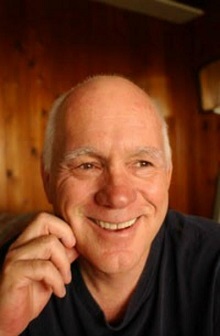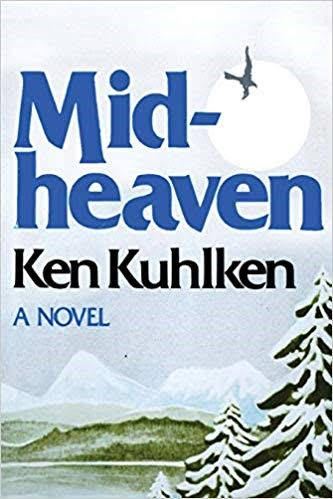Help me welcome Ken Kuhlken to the blog as today’s Wednesday’s Guest. I reviewed his novel Midheaven here a couple of weeks ago and he was supposed to appear on the blog the following Wednesday. Due to a mixup from his publicist to me and to him and back to me, the visit was delayed, which is not a problem for me. I’m flexible, and the guest post was worth waiting for.
Grab a cookie to go with a beverage of your choice and enjoy.

ABOUT HIS BOOK: Midheaven, Ken Kuhlken’s first novel, was originally published by Viking Press. The haunting story, set in and around the exquisite Lake Tahoe basin, is told through the mind of a precocious seventeen-year-old torn between her quest for God and her love for a man. In the early 1970’s, high school senior Jodi McGee turns from drugs and boys to Christ, but soon thereafter falls for her English teacher, Philip. As a result, tragedies test her will, her faith, and her sanity.
Now here’s Ken.
 I have always known better. Way back, when I played in a band, I noticed that, other things (like talent), being equal, the musicians who made a name, a living, maybe even a career, out of their music were the ones most gifted at or dedicated to promoting.
I have always known better. Way back, when I played in a band, I noticed that, other things (like talent), being equal, the musicians who made a name, a living, maybe even a career, out of their music were the ones most gifted at or dedicated to promoting.
But, silly me, I didn’t apply that observation to writing. After all, having majored in literature, books were to me sacred objects and should consequently lie out of the commercial realm. Besides, if I had wanted to be a sales person, I would have majored in business. Anyway, surely my publishers would take care of the marketing.
So, with my first published novel, Midheaven, I paid little attention to promotion, maybe two book signings and a couple local newspaper interviews. The lack of marketing support from my publisher, I learned, was because my wonderful editor moved on before the release of my book. The novel earned a prestigious award yet neither I nor the publisher capitalized.

Then I wrote a mystery novel and won a national contest, which earned a contract with another major publisher. Now I engaged in many book signings and attended mystery conferences. But the distribution of my books was so erratic, I began taking copies with me to assure the booksellers would have some available. And when a big circulation local weekly, the San Diego Reader, invited me to interview myself and ran the interview as the cover story, with my handsome face up front, I believed this would sell hundreds of copies and maybe start a word of mouth avalanche. However, I was soon to learn, not a copy was available in San Diego the week the story came out.
At a mystery conference, after a panel discussion, a fellow approached and wanted to know more about my books, and when he asked who was the publisher and I told him, he closed his eyes and grimaced. Because he was the west coast rep for my publisher, and he swore to me that though his company had published three of my books, he hadn’t known they existed.
So now he actually read them, and called me, full of praise, and asked me to query the publisher’s paperback mystery editor with his recommendation. Since all along I had heard from booksellers that in order to catch on, mysteries needed to appear in mass market paper, I felt sure this would send me to the tipping point.
With high hopes, I queried the paperback editor. But soon I received this response: “We have decided against paperbacks of your books because I and [my hardback editor, whose memory I don’t want to tarnish] agree that male PIs aren’t selling well in paper.”
I could go on with the story, but now I am bummed from remembering and would rather go out to the yard and water my lemon tree while I consider returning to college and this time declaring a major in marketing.
I think all writers can relate to Ken’s story. I know I can. Thanks for sharing, Ken.
